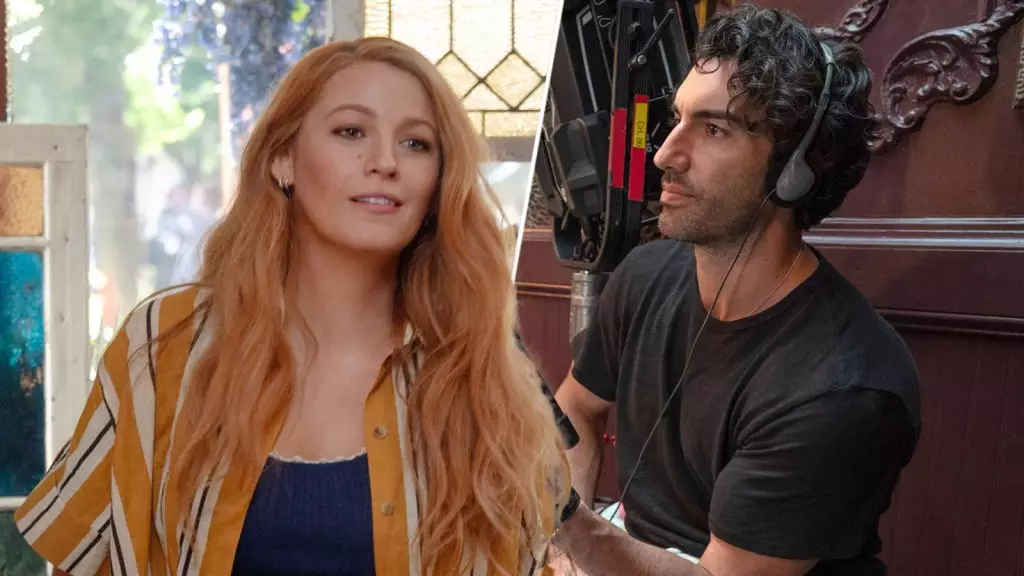The recent lawsuit filed by Blake Lively against her co-star and director Justin Baldoni ignites a significant conversation about the ongoing issues of workplace harassment and the mechanisms of retaliation within Hollywood. Alleging sexual harassment and a coordinated smear campaign, Lively claims that Baldoni’s inappropriate behavior severely impacted her professional life, leading to the cancellation of crucial public appearances, including hosting the premiere of Saturday Night Live’s 50th season. This situation sheds light on the power dynamics often at play within the entertainment industry and the courage it takes for individuals to speak out against alleged wrongdoing.
Lively’s claims are not just about personal grievances; they highlight a systemic problem where individuals may feel compelled to remain silent due to fears of retaliation. The lawsuit details how the stress and negative narrative surrounding the filming of “It Ends With Us” forced Lively to withdraw from professional commitments, illustrating how workplace misconduct can have far-reaching consequences not only for the victim but also for their career trajectory. It raises pertinent questions about how to foster a safer and more equitable work environment in a high-stakes industry.
According to the lawsuit, the fallout from Baldoni’s alleged actions was immediate and profound for Lively. She claims that she felt the need to cancel significant appearances, including a critical event for her haircare brand and the SNL hosting opportunity. The complaint argues that Baldoni and his production company engaged in a “sophisticated press and digital plan” intended to retaliate against her for voicing concerns about his behavior. This raises a troubling narrative about how influential figures might leverage their power to silence dissenters and control the prevailing narrative within the industry.
The document filed with the California Civil Rights Department describes moments during an all-hands meeting where Lively, her husband Ryan Reynolds, and Baldoni discussed Baldoni’s alleged inappropriate conduct. Reports of improvised kissing scenes and discussions of personal issues like porn addiction highlight a lack of professionalism and respect in the workplace. Such incidents serve as important reminders that even in creative environments, boundaries must be clearly defined and respected.
The lawsuit further reveals Baldoni’s response strategy involving crisis PR professional Melissa Nathan, known for her work during high-profile celebrity controversies. Her involvement suggests that there is a playbook for addressing allegations of misconduct, where the focus can shift from confronting the actions themselves to managing public perception. This response further complicates the situation, indicating that Hollywood is well-equipped to navigate scandals, often prioritizing reputation management over genuine accountability.
Moreover, Baldoni’s lawyer has publicly dismissed Lively’s claims as “categorically false,” suggesting that this is merely a desperate attempt to reshape her image amid negative publicity stemming from her honest assessments during the film’s promotional activities. This highlights a troubling truth: when individuals like Lively step forward, they often face intense scrutiny and secondary victimization, which can dissuade others from coming forward with their own experiences. The struggle between prioritizing personal integrity and managing public perception is one many in the industry must navigate.
The Community Responds
In a striking display of solidarity, author Colleen Hoover has publicly supported Lively, expressing gratitude for her honesty and integrity—qualities that are often put in jeopardy amid such turbulent narratives. Such endorsements can be monumental for individuals facing backlash as they speak out against powerful figures. The acknowledgment from peers serves to validate their experiences and demonstrates that community support can be a powerful tool for change.
Lively’s case speaks volumes about the broader implications of speaking up against harassment and the subsequent implications for one’s career. The film industry’s entrenched power dynamics require a collective effort to not only support survivors but also to instigate lasting change. As society continues to grapple with these deeply ingrained issues of power, harassment, and retaliation, it becomes increasingly clear that the voices of individuals like Blake Lively are crucial in breaking the cycle of silence. The unfolding drama is not just a personal battle; it represents a pivotal moment in the ongoing fight for a more equitable industry for all.

